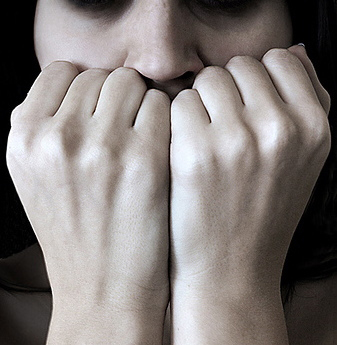Drugs: Recovery, Stages and Progress
Recovery and stages of the addictions, which are the basic steps to a successful recovery, the different stages a person suffering with drug addiction, fundamental pillars of good treatment and everything on the recovery and stages of the addictions.
Table of Contents
Treatment and Recovery
While recovery is the process by which the addict stops their use and produce positive changes in lifestyle, here defined as a structured set of clinical activities that are used to help the addict to recognize and stop active addiction; as well as promoting and maintaining sustained recovery.
It is necessary to clarify the relationship between these two processes that act in harmonious and coordinated manner. Recovery is for life and its purpose is improving the quality of life of the addict in recovery. The treatment is limited to a period of time, but it may require several sessions of treatment throughout the life of the addict. The goal of treatment is to assist the patient to achieve recovery.
Often the first contact with the treatment makes the addict to treat any complication secondary to the use. For example acute gastritis in alcoholism or a venereal disease in the addicted to sex. If at that time the proper diagnosis of addiction is more likely that a recommendation of specific treatment for addiction is made. But often it does not become the diagnosis for the absence of training that exists in the professions of help in this area of the addiction treatment.
It’s advisable to consult with a professional addiction or addiction counseling Scottsdale who is trained in this area and meets the requirements for to help. Moreover, you have to keep care and caution as there is always a sector of phonies who take advantage of the desperation of families suffering from addiction to deceive with false promises or “cures” magic.
Psychosocial changes are the focus where the greatest amount of energy treatment will reverse because that is where the possibility of constructive change is greater. The different therapeutic tools can and should be used holistically; taking into account the special needs of each person, but never as a substitute for psychosocial treatment.
There is no better than other treatments but each person has different needs and every treatment modality offers different possibilities. Each individual treatment plan should be based on the severity of the addiction process, the individual characteristics of the person and the situation of psychosocial functioning at that time.
Stages of Recovery
The recovery process can be divided into stages for study and understanding. These steps are based on the evolutionary model of recovery.
Each of these stages involves a basic need of the recovery process, and is associated with a number of tasks that ensure that recovery keeps going.
Transition: At this stage the basic task is to let go of the need for control over the use, whether substances, chemical addictions, or addictive behaviors in behavioural.
Stabilization: In this stage all the energy is focused on recovering from the damaging effects that the compulsive use has had on the lives of the recovering person.
Early Recovery: In this stage produces the first internal changes, of thought, feelings and attitude regarding the use.
Medium Recovery: Here external changes. The repair of the lifestyle damaged by addiction and developing a life style more healthy and balanced.
Advanced Recovery: This stage is defined by overcoming emotional issues and pending family members, who come from parenting, childhood and adolescence.
Maintenance: This stage is based on the ability to maintain a balanced life and continued personal growth.
All these stages overlap each other and there is really no exact definition that separates from each other, but works to be located in the relevant task when you live in recovery.
The Relapse Process
Addiction such as chronic disease is associated with a natural tendency to relapse. That does not mean it is inevitable or appropriate to have relapses, but they are a reality, and the best way to prevent them is accepting the risk and knowing better the process of relapse.
One of the most common misconceptions is that relapse is just around the use. Although this is partially true, actually is called relapse to the entire process (1) which leads from a State of sustained abstinence, (2) until the consumer or active addiction. (3) This process occurs over time (4) and is expressed as a series of symptoms or changes that are actually regress to old patterns of behavior and thought that had already been exceeded.
Symptoms of Relapse
A person in recovery can begin to show symptoms of a relapse long before consumption. Be able to identify these symptoms and treat them early can help prevent a relapse:
- Return the obsessive thinking about the use: It could be thoughts related to the use, dreams or desires to use it again after it had gone.
- Defiance regarding recovery plan: to go back to the places of risk and return to see the people related to the use.
- Caregiving recovery plan: Stop going to meetings, or missing appointments with the therapist, stop reading or exercising.
- Isolation or loss of contact: Relationships with new recovery.
- Irritability: Especially in significant relationships of the addict.
- Obsession with image or physical defects: Excessive dieting, excessive concern about weight.
- Feelings of depression and floating anxiety: Ensue uncomfortable emotional states that do not necessarily relate to any external event.
- Frequent arguments in the home and family.
- Defensiveness to talk about his recovery or as feedback.
- Insomnia, restlessness, and difficulty to rest.
- Obsessive preoccupation for the money and financial security.
